Understanding the role of the bass.
Bass guitar is one of the most under appreciated instruments in a band. Many audience members have no idea what the role of the bass is. Despite this fact, bass is probably the most critical instrument in a group. It is rare to find a performing band without a bass player. As a budding bassist, you should be happy to know there is always a high demand for bassists—especially good ones.
The Responsibilities of the Bass Player
Normally, the role of the bass is twofold:
- It provides the rhythmic foundation.
- It provides the harmonic foundation.
The Rhythmic Foundation
The rhythmic foundation is about the consistent pulse of the beat. This is probably the most important factor in the role of the bass. Even the drummer works his beat around a bass line. A great bass player helps the band by laying down a steady pulse. Most songs that are popular and often played at dance functions consist of a steady rhythm. This is the main job and first priority of the bass player. People would rarely be able to dance to a drum beat alone. Its usually the bass that people respond to deeply and move to. This is very evident in African Cultures where the bass takes high praise and respect.
The Rhythmic Pulse
The drummer also contributes to the rhythmic pulse. It is a team effort often described as a “Marriage”. In fact if a drummer and bass player don’t get along or “lock in” together well there is a serious problem! No matter what the drummer is like, as a bass player you want to have a strong sense of rhythm for yourself. This goes for every individual in the band. They cannot borrow “time feel” from the drummer. Everyone has a part to play in keeping a band rhythmically solid.
This is arguably the most important part of bass playing. Even if your note choices aren’t perfect, the rhythmic foundation you lay down is what you will be remember for. The feel and groove you give to a band are unique and essential to the bands success.
The Harmonic Foundation
Apart from providing the basis for rhythmic pulse in a band. The other important part of the role of the bass is providing the foundation for the harmony.
Harmony simply refers to the playing of several different notes at the same time. Sometimes only a guitarist or keyboardist will create this harmony. Other times a large combination of instruments/voices in a sound studio in Sydney, such as in an orchestra, rock band or a choir, create the harmony together.
When we hear more than one note played at the same time, we all the notes in relation to the lowest sounding note — the bass note.
Where to start when learning
So what about learning the bass. Do you want to dive in and join a band as one of the most important members and the backbone of the music? Do you want to walk into a Sydney Recording Studio and lay down a solid line? Its a great and noble cause. Just bear in mind the following:
You need to know the songs better than the other members! Yes thats right, often a drummer or guitarist or singer will look to the bass player to be sure of where they are in the order of the song. You knowing the song inside out is essential to a rehearsing band feeling comfortable.
You need to have a great sense of timing. In one very real sense, you need to have the mentality of a drummer. In most auditions for bass players, what gets them over the line and into the band is the “feel” that they bring to the music.
Great examples of bass playing
You want to be an expert in multiple styles if you want to make an impact in a Music Studio in Sydney. Consider learning the baselines for the following various styled songs:
- Is this love – Bob Marley – A great way to begin to understand reggae feel on the bass.
- Fine China by Chris Brown – A classic RnB bass line that requires both great groove and also virtuosity. It will really challenge you.
- Sweet Chilld of Mine by Gun’s n Roses – One of the most beautiful melodic rock baselines in history. Duff McKagen was the backbone of this great 80’/90’s rock band.
- Suck my Kiss by Red Hot Chilli Peppers – You really can’t go past the great “Flea” for funky and punchy baselines. This one is a solid, syncopated groove.
- What’s going on by Marvin Gaye – The father of Motown bass playing – James Jamerson, lays down a wonderful melodic adventure for you to learn. This will teach you about harmony and using chord tones, scales and arpegios to construct a great bass line.
Other essential styles
Apart from these great starters which will challenge you melodically and technically, you will want to thoroughly cover the basic styles of music:
Country (Check out Keith Urban and Dixie Chicks)
80’s/90’s pop (Check out Madonna and Prince)
Motown – Anything by the Four Tops or Temptations will get you started.
Jazz – Try some easy Ray Brown lines from the early Oscar Peterson Records. Or Sam Jones from Bobby Timmons trio.
Blues – BB King, Albert King, John Lee Hooker, Muddy Waters or anyone else from that era.
Now you are armed with a great arsenal of styes and influences. Get out there and audition and keep the band in time! Walk into a Sydney voiceover studio or a Sydney Recording studio today and dazzle them.




